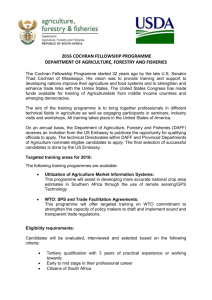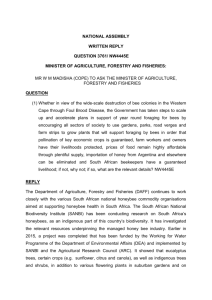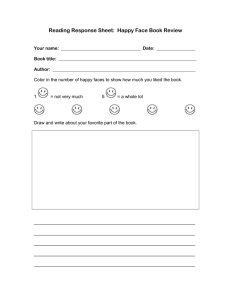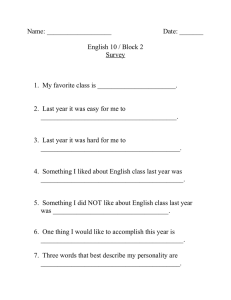Morphology Practice Exercises: Free/Bound Morphemes & Word Trees
advertisement
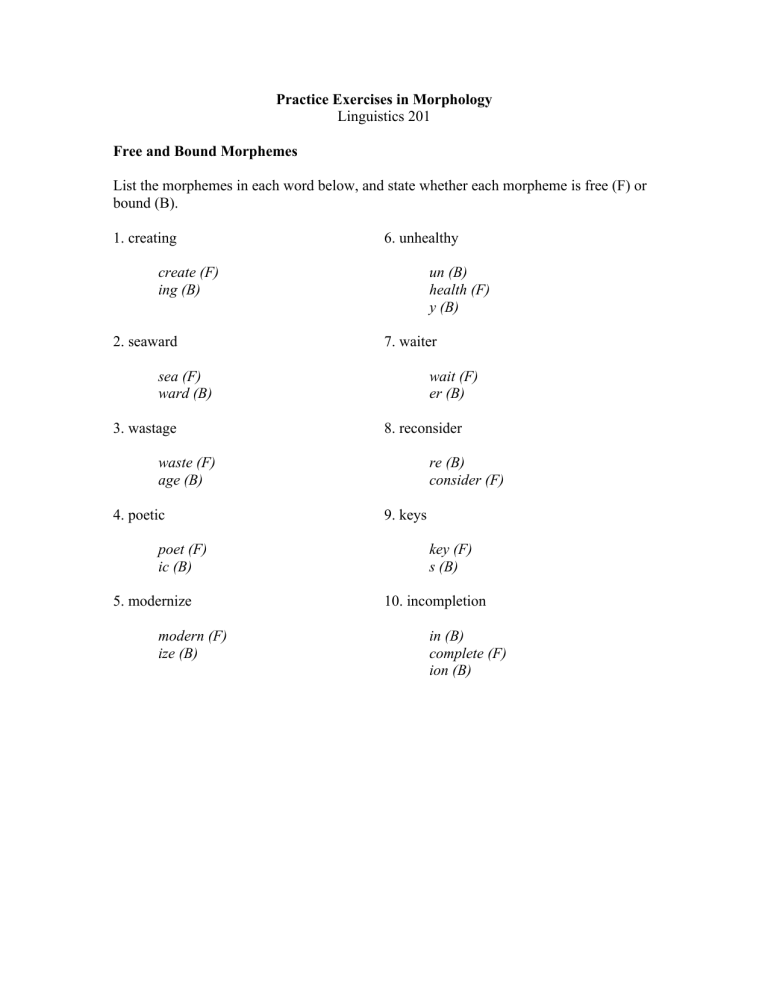
Practice Exercises in Morphology Linguistics 201 Free and Bound Morphemes List the morphemes in each word below, and state whether each morpheme is free (F) or bound (B). 1. creating 6. unhealthy create (F) ing (B) 2. seaward un (B) health (F) y (B) 7. waiter sea (F) ward (B) 3. wastage wait (F) er (B) 8. reconsider waste (F) age (B) 4. poetic poet (F) ic (B) 5. modernize modern (F) ize (B) re (B) consider (F) 9. keys key (F) s (B) 10. incompletion in (B) complete (F) ion (B) Word Trees For each word below, draw a word tree. 1. shipper 2. disobey 3. resettled 4. anticlimaxes 5. disengagement 1. 6. simply 7. jumping 8. digitizes 9. activity 10. confrontational N 2. V V DAff DAff V ship er dis obey 3. V V DAff V IAff re settle d 4. N N DAff N IAff anti climax es 5. 3. N V DAff V DAff dis engage ment 6. Adv 7. V Adj DAff V IAff simple y jump ing For #7, “jumping” could also be either a noun (“Jumping over the water was dangerous”) or an adjective (“The jumping bunnies looked ridiculous.”) In both of these cases, “ing” is a derivational affix. 8. V V N DAff IAff digit ize s 9. N Adj V DAff DAff act ive ity 10. Adj N V DAff DAff confront ation al Practice Exercises in Morphology III Linguistics 201 I. Morphological Analysis From the following data sets, identify the strings of sounds which correspond to the morphemes in each language. Swahili Swahili is a Bantu language which is spoken primarily in East Africa. There are approximately 800,000 native speakers of Swahili, and some 30,000,000 people (!) worldwide speak Swahili as a second language. anapenda atapenda alipenda amependa alinipenda alikupenda alimpenda alitupenda aliwapenda nitampenda Pronouns he: a me: ni you: ku him: m us: tu them: wa I: ni 'he likes' 'he will like' 'he liked' 'he has liked' 'he liked me' 'he liked you' 'he liked him' 'he liked us' 'he liked them' 'I will like him' alimona alimsaidia alimpiga alimchukua alimua ananitazama atakusikia alitupanya ninakupenda nitawapenda Tenses [present]: na [future]: ta [past]: li [past part.]: me Translate the following English sentences into Swahili: i. He has hit me. amenipiga ii. He helps us. anatusaidia iii. I will look at you. nitakutazama 'he saw him' 'he helped him' 'he hit him' 'he carried him' 'he killed him' 'he looks at me' 'he will hear you' 'he cured us' 'I like you' 'I will like them' Verbs see: ona help: saidia hit: piga carry: chukua kill: ua look: tazama hear: sikia cure: panya like: penda
